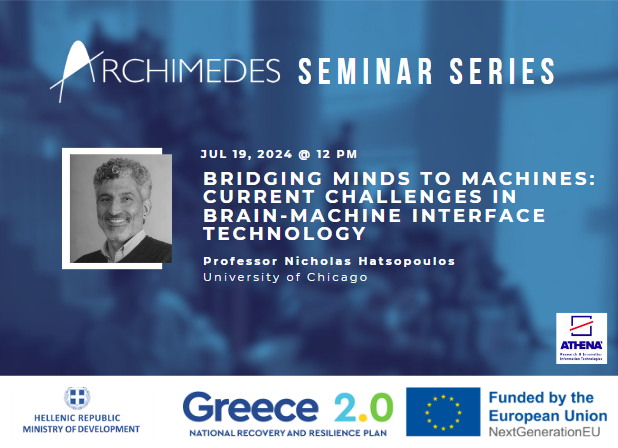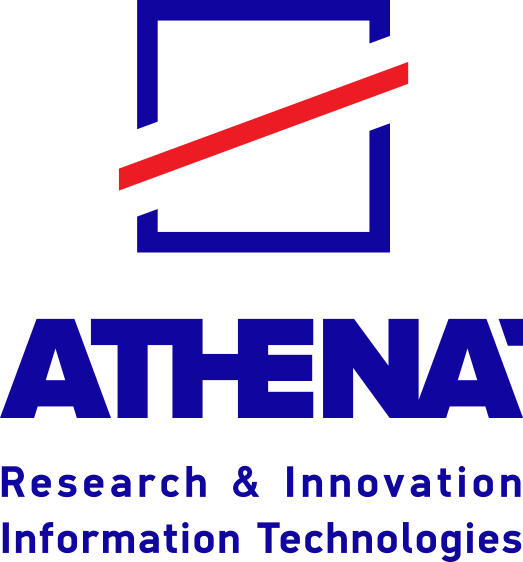[Archimedes Seminar Series] Bridging Minds to Machines: Current Challenges in Brain-Machine Interface Technology
Dates
2024-07-19 12:00 - 14:00
Venue
Artemidos 1 - Amphitheater
Archimedes Seminar Series: Bridging Minds to Machines: Current Challenges in Brain-Machine Interface Technology
Prof. Nicholas Hatsopoulos
Prof. Nicholas Hatsopoulos
Professor at the University of Chicago


Abstract: A fundamental challenge in developing useful brain machine interfaces (BMIs) is to augment BMIs with kinesthetic and tactile feedback. We have attempted to provide kinesthetic feedback by using cortically-controlled exoskeletal robots to provide naturalistic kinesthetic feedback. This approach could be practical for subjects with residual sensation which is common in spinal cord-injured patients. To provide tactile feedback, we are using electrical stimulation of somatosensory cortex (S1) to deliver artificial tactile feedback. While successful in providing localized tactile percepts, we have documented that electrical stimulation in S1 can disrupt BMI decoding from motor cortex due to anatomical connections between these two areas. I will present our attempt to address this challenge.
Bio: Nicholas G. “Nicho” Hatsopoulos, Ph.D. is currently a Professor at the University of Chicago. Dr. Hatsopoulos was also Chairman of the Computational Neuroscience graduate program from 2008-2015. Dr. Hatsopoulos completed two postdoctoral research fellowships, one in the Department of Neuroscience at Brown University and the other in the Computational Neuroscience Program at the California Institute of Technology. Dr. Hatsopoulos completed his B.A. in Physics from Williams College in 1984, his M.S. in Psychology in 1991 and his Ph.D. in Cognitive Science from Brown University in 1992. In 2001, he co-founded a company, Cyberkinetics Neurotechnology Systems, which took the basic scientific research he and his colleagues conducted to develop neural prosthesis technology to assist people with severe motor disabilities. His research focuses on the neural basis of motor control and learning. He is investigating what features of motor behavior are encoded and how this information is represented in the collective activity of neuronal ensembles in the motor cortex. He is also interested in how these representations change as motor learning occurs. To answer these questions, the electrical discharge of many motor cortical neurons is simultaneously recorded using multi-electrode arrays and correlated with motor behavior. The encoding properties of individual motor cortical neurons are being studied to determine how these single cell properties relate to higher-order representations involving groups of neurons. The possibility that changes in functional connectivity among neurons may occur during motor learning is also being explored.
Microsoft Teams Need help?
Meeting ID: 387 895 026 974
Passcode: YwdsGG
For organizers: Meeting options



